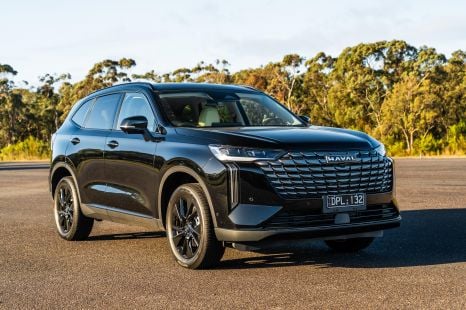

Josh Nevett
2025 GWM Haval H6 review
1 Month Ago
The Honda HR-V e:HEV won’t be for everyone, but it's for those wanting something a cut above the rest in the small SUV segment.
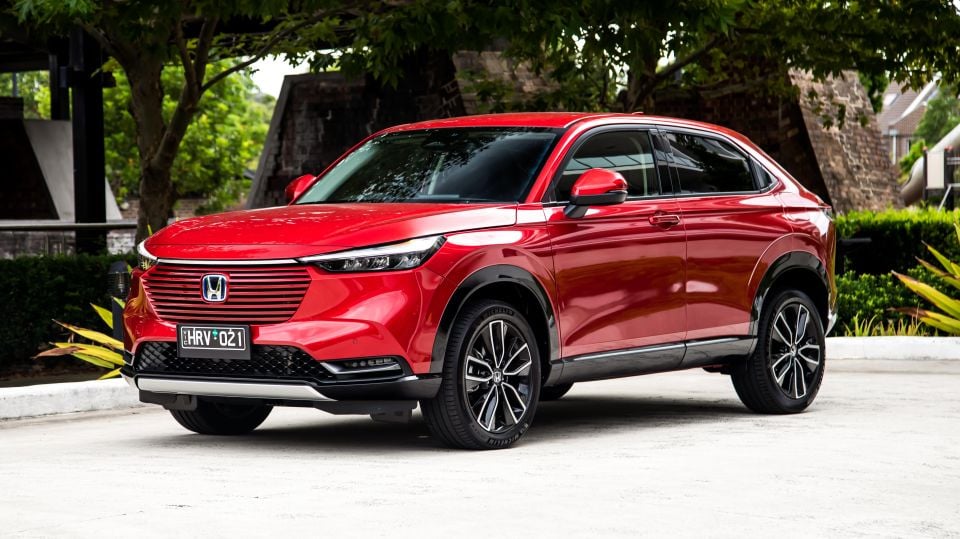


Senior Road Tester

Senior Road Tester


Senior Road Tester

Senior Road Tester
Quickly see how this car stacks up against its competition. Select any benchmark to see more details.
Where expert car reviews meet expert car buying – CarExpert gives you trusted advice, personalised service and real savings on your next new car.
After recent seat time in a spate of new Honda fare including the peerless Civic Type R, I was more than keen to find out if Honda’s chassis competency and cabin comfort had also found its way into its range of SUVs, including the efficient HR-V e:HEV.
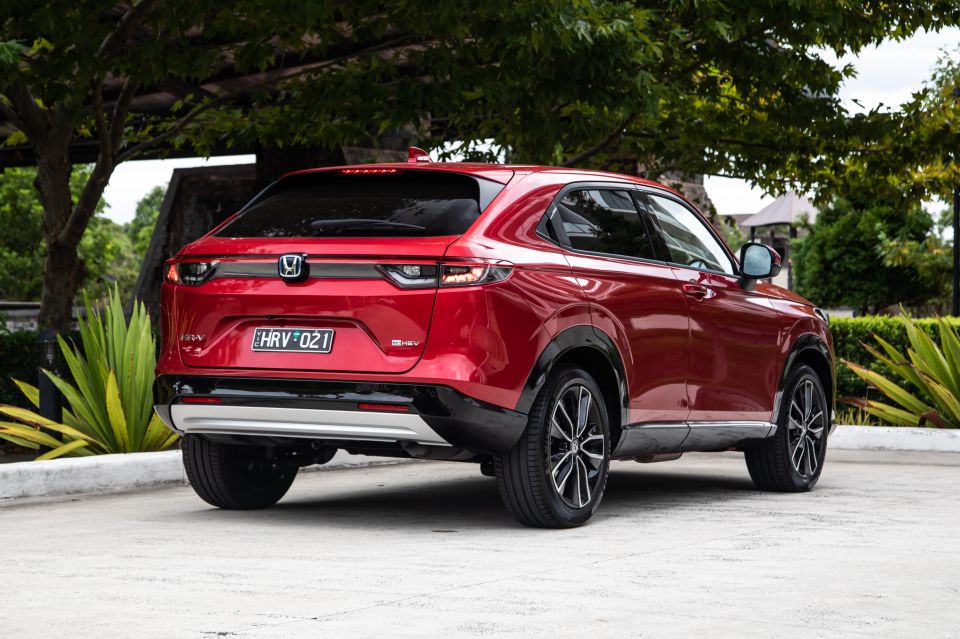
With no less than hundreds of new models launched each year in Australia, it’s all too easy to overlook the less popular models in each segment; which in Honda’s case just happens to be one of more handsome, if not roomiest entries in the category.
Aesthetically, the Honda HR-V e:HEV has plenty going for it – standout coupe styling, slim LED lights all round, a full-length tail light bar and a distinctive, multi-vaned, body-coloured grille up front.
It’s nicely resolved and contemporary in design that makes a genuine statement for buyers looking for something a bit more premium in the segment. Of, course, that’s if you’ve actually seen one on the road, given sales have been dwarfed by more popular models from the likes of GWM, Subaru, Kia, Toyota and Mitsubishi.
Interestingly, it was at the latest Civic Type R launch in Portugal late last year where I saw the latest third-generation HR-V for the first time despite the fact it had already been on sale in Australia for some time. Seems I missed this launch entirely.
Again, it’s sometimes difficult to keep up with every make, model and variant launched here given the frenzied post-COVID-19 world these days, as the car industry ramps up its transition from vehicles powered by internal-combustion engines to fully-electrified cars, as well as those in between.
The sales charts show there are plenty of buyers still holding the view we still don’t have the required infrastructure in place to support a full grid of EVs, which is where hybrids have proven to be a popular stop-gap for those not yet willing to ditch the petrol bowser.
Indeed some have, but in a complete backflip, some have already returned to the more accessible fossil fuels with less than favourable stories to tell about the lack of charging facilities even for those short weekend getaways, or as one colleague recounted, the complete lack of etiquette at those same charging bays.
It’s an ideal market situation for all manner of hybrids which have continued to flourish while showing no signs of a slowing down. In fact, waiting times for petrol-electric vehicles have only continued to blow out, and not just with the most popular brands.
Newcomers like GWM Haval are selling their fair share of hybrid-powered models like the H6 and Jolion, but then so too is Subaru, peddling plenty of its Forester and XV Hybrids – with a new Crosstrek Hybrid on the way.
Toyota has been cleaning up with its vast array of hybrid models for several years now, with offerings across almost its entire model range; including the RAV4, Corolla, Kluger, Camry, Yaris Cross, CH-R and Corolla Cross. In fact, they’re pretty much all buyers want these days, as cost-of-living pressures continue to soar.
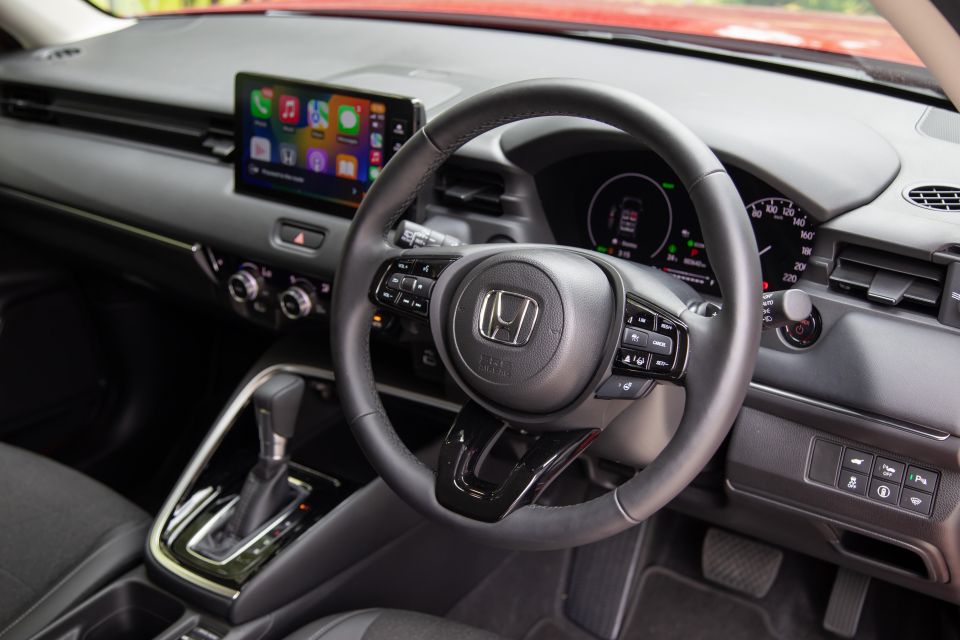
Honda is in the mix too, with its HR-V and Civic e:HEV hybrid models looking to capitalise at the premium end of affordable segments, with more discerning consumers keen on having one foot in each camp before an acceptable ownership experience is in place for an all-electric purchase.
As fresh as the HR-V might look, it’s not exactly cheap; but Honda would like you think in terms of, ‘you get what you pay for’. In this case that could also be construed as more for less, given it’s only a four-seater these days.
Nevertheless, the HR-V e:HEV should be considered as a more premium play than many of its rivals, and will likely suit those buyers looking for something a cut above the rest and willing to pay for the privilege.
Pricing for the unchanged Honda HR-V range sees the top-spec e:HEV L hybrid version tested here priced from $47,000 drive-away, thereby commanding a $2000 premium than when it launched in 2022.
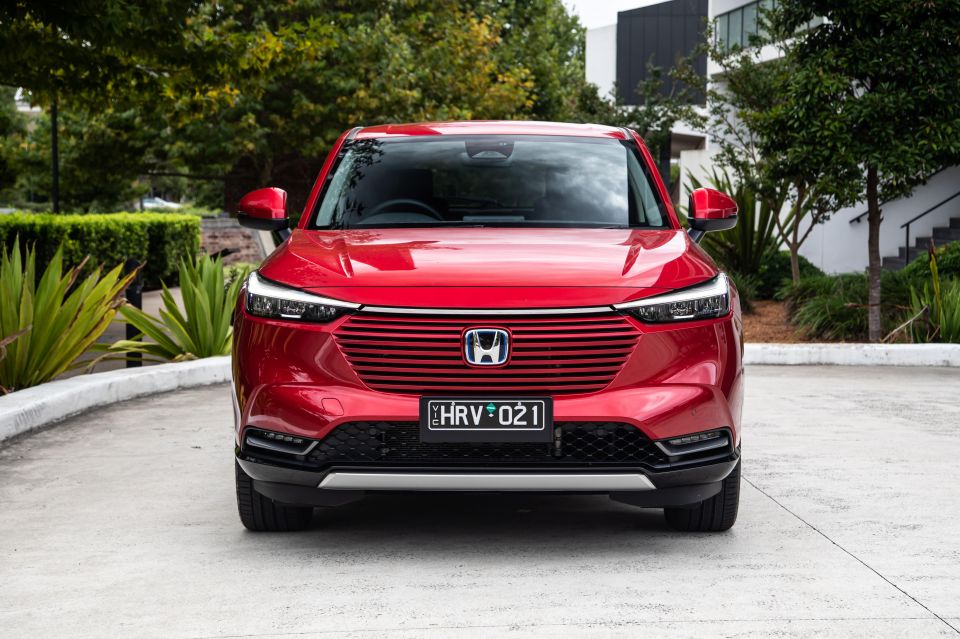
The entry-level HR-V Vi X, meanwhile, still carries the same $36,700 drive-away sticker, though buyers of both model variants now pay a modest increase in scheduled servicing fees which are capped at $199 for the first five years (versus $129) – still relatively inexpensive though compared to many.
So how does the Honda HR-V e:HEV compare with its rivals? No question Honda is at the pointy end of the pricing scale when it comes to small SUVs with hybrid power, but then you might be surprised to learn it’s not the dearest.
That title goes to the top-spec Kia Niro HEV GT-Line at $54,766 drive-away using a Sydney postcode, while even the Niro HEV S is $48,833 drive-away, according to Kia’s online configurator.
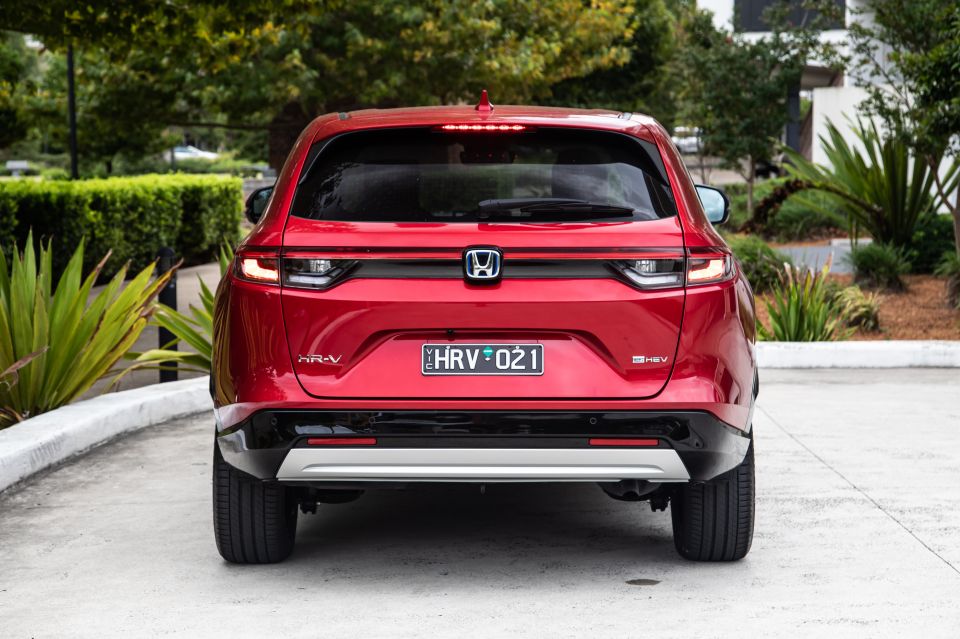
Moreover, the Mitsubishi Eclipse Cross Plug-in Hybrid EV ES is priced from $51,290 drive-away, while the Subaru Crosstrek AWD Hybrid S is from $46,179 drive-away, and Mazda’s MX-30 M Hybrid can be bought from as little as $38,630 on the road (Victoria).
There’s also the GWM Haval Jolion Ultra Hybrid from $40,990 drive-away, whereas the Toyota C-HR Hybrid wears a marginally higher $42,447 drive-away sticker in both Koba and GR Sport specifications.
Hyundai has new-generation Kona on the way that adds considerable size and space to the nameplate as well as offering a hybrid and two EV variants to the line-up – the electrified variants are due in the fourth quarter.
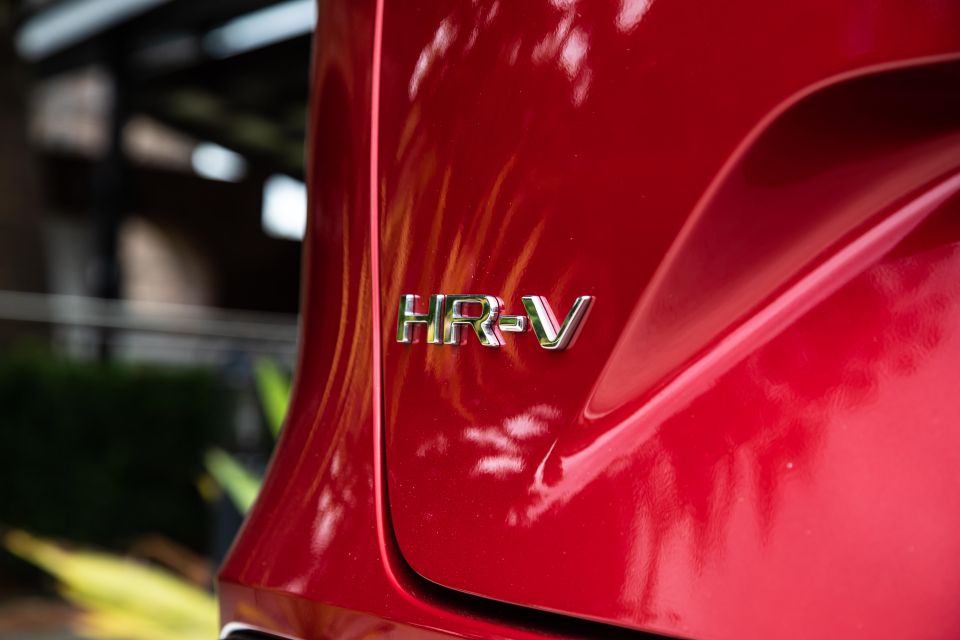
2023 Honda HR-V pricing
Prices are drive-away
Buy your new car without the stress. It's fast, simple and completely free.

Great service from Travis and team, second time I have used this business would not hesitate to recommend them to anyone
Craig C.
Purchased a Ford Ranger in Sunshine Coast, QLD
CarExpert helped Craig save $7,224 on his Ford Ranger, now let us save you on your next new car.
Get your BEST priceIt’s not quite a carbon-copy of its Civic stablemate, but for sure there are premium elements to this cabin which make for a very satisfying ambience and a nice place to sit behind the wheel.
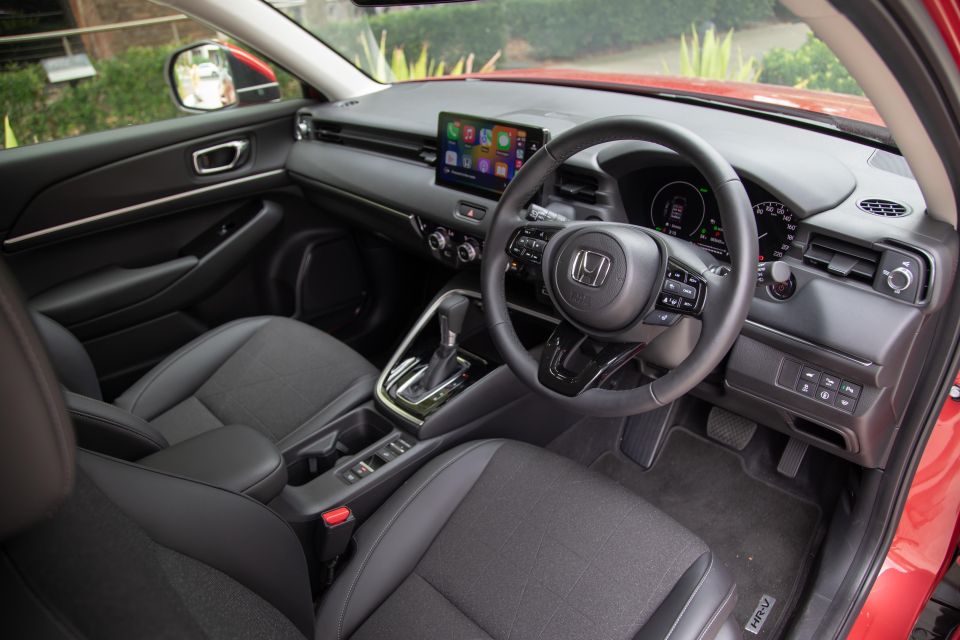
The ergonomics are benchmark, while the look, feel and tactility of the switchgear and brightwork is first rate. Honda has been sensible in providing knurled dials and knobs for the climate control, as well as easy-to-access knobs to manage individual air-flow up front.
It’s not just the ergonomics and intuitive switchgear that gets our tick of approval, the air-con system itself has been specially designed to direct the air-flow gently around the entire cabin rather than a direct blast into your face.
Honda calls it an ‘Air Diffusion System’ that uses L-shaped vents in the top corners of the dash that push out a natural-like breeze rather than the usual directional ventilation. It works too, as I’m one of those who can never seem to get it right, but in the HR-V I didn’t even have to think about it.
Better still, the HR-V gets Honda’s latest seating technology featuring mat-structure support, replacing the old spring set-up. Lower-back comfort is remarkable, though, as a top-spec model I might have expected leather inserts to match the bolsters. Nevertheless, on hot days wearing shorts you won’t scald your legs after a day at the beach.
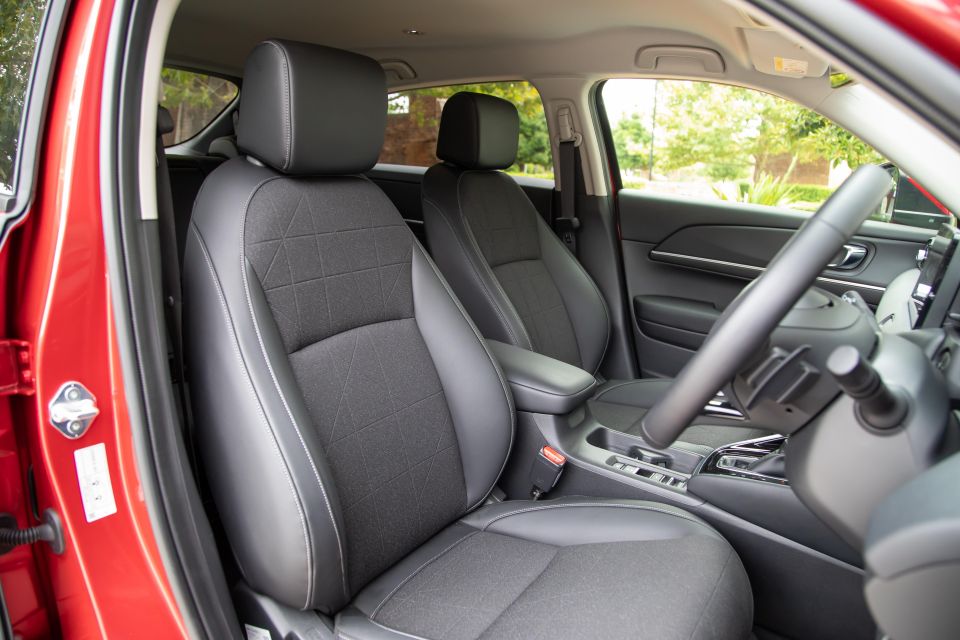
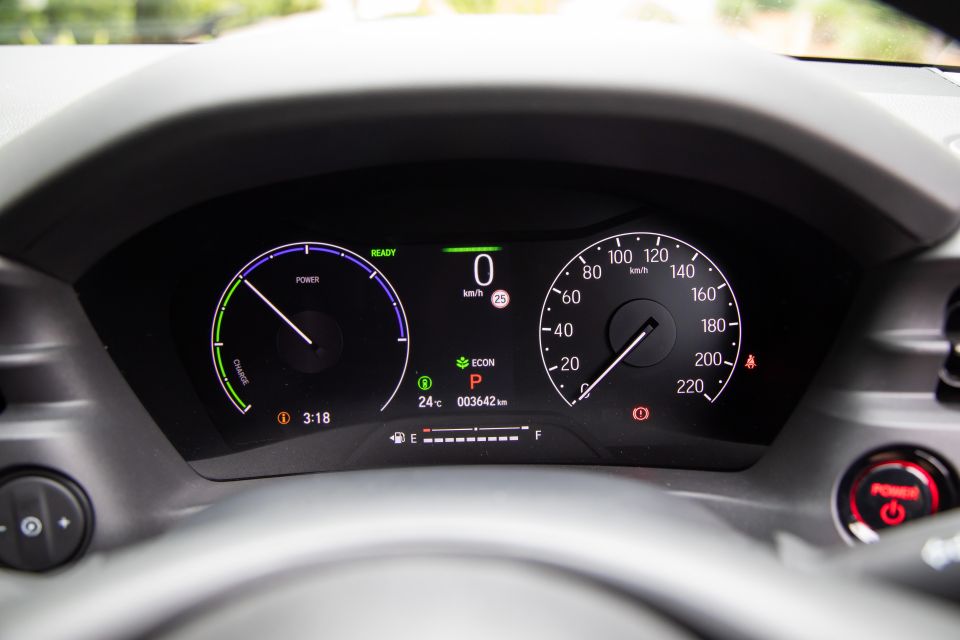
The driving position, too, is more commanding than any small SUV I’ve driven. In fact, it feels more medium SUV in that regard given those newly-designed front pews have been raised by 10mm, while the vehicle itself has a ride height of 195mm – more than some larger SUVs like the Toyota RAV4 GXL Hybrid (190mm).
Even with its raised height and elevated seat mounts, the HR-V still looks decidedly sporty and coupe-inspired thanks to its lower height (by 15mm).
It’s an enviable position for a small SUV which also boasts excellent sight lines and all-round vision thanks to its flat bonnet and specially-shaped windows, designed to allow as much light in as possible. And, even though the rear tailgate is steeply raked, again rear vision is somehow unrestricted.
Up front it’s an uncluttered design where you won’t find many hard plastics. The leather-wrapped steering wheel is extra-tactile and feels European, as does the traditional shift lever. Everything is satisfyingly damped, too, from the instrument stalks to the knobs and dials. You just know someone has put a lot of thought into the small details.

The touchscreen is semi-integrated rather than just floating and looks better for it, while the interface itself is quick to respond to touch inputs, and presents crystal clear colours and graphics especially when using wireless Apple CarPlay.
However, you don’t get a fully-digital driver’s instrument display which is becoming increasingly common in cars at this price point. In the HR-V it’s only half digital on the left-hand side that’s also mildly configurable. On the other side you get a traditional speedometer gauge.
There are also two USB ports up front and two in the rear, along with plenty of spaces for phones, wallets, sunnies. There’s even a separate storage space under the boot floor if you want to hide a laptop or other valuables.
Annoyingly, there’s no wireless charging even though there’s a perfectly good rubberised bed for it just ahead of the shift lever as there is in the Civic. No panoramic sunroof either and for this price, buyers might be expecting as much.
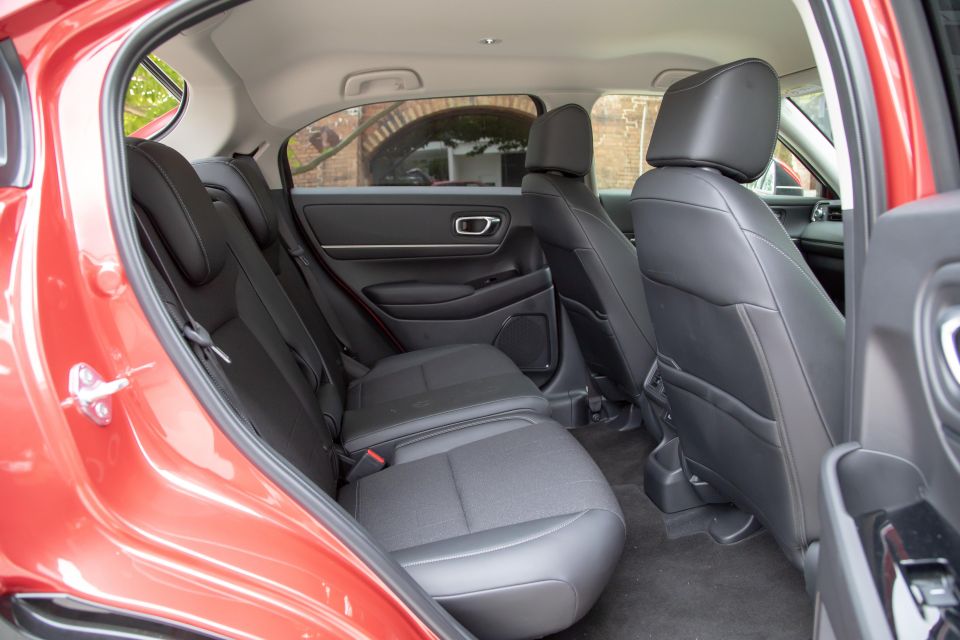
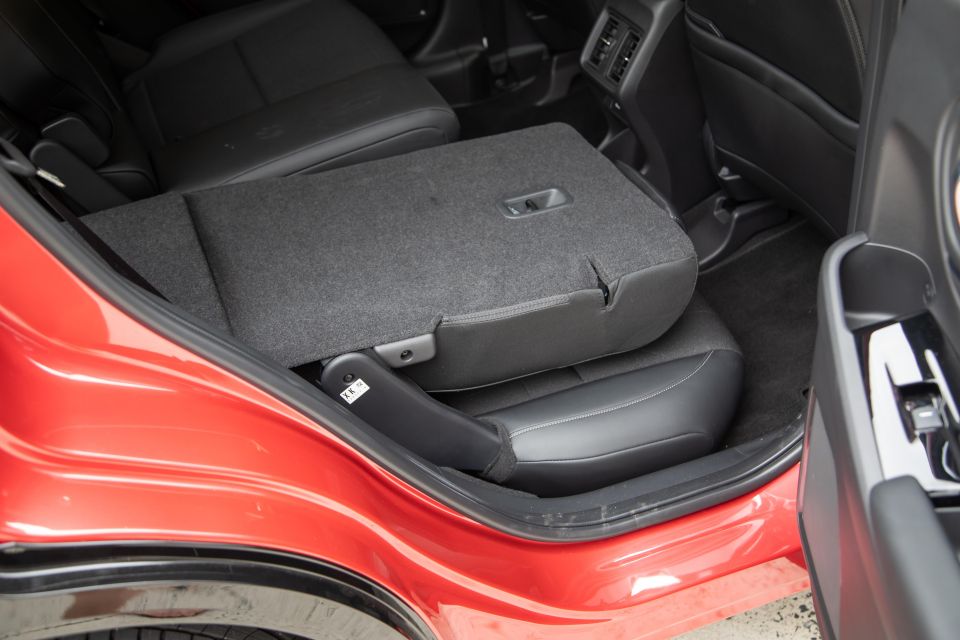
And while there’s plenty of space all-round, you might be surprised to learn the new Honda HR-V is only a four-seater with a two-seat bench in the second row. Clearly it’s not for everyone, but for new families, retirees, couples or even singles, it simply means everyone is going to be more comfortable, I suppose.
To that end, there’s 35mm more rear legroom than the old one and you can get your feet under the front seats if need be, and of course with only one other passenger sitting next to you there’s oodles of elbow and shoulder space available for long-haul comfort.
Boot space behind the rear is similar to most of its rivals, offering 304L. The Toyota C-HR is comparable with 318L, likewise the Mazda MX-30 with 311L. Larger boots can be found in the Kia Niro (425L) and Haval Jolion (390L), while the Mitsubishi Eclipse Cross offers 359L.
But fold the rear seats and here’s where the Honda makes a lot more sense than almost all its rivals. You see, the HR-V has Honda’s acclaimed Magic Seats, which sees the rear seats easily folding dead flat thanks to the seat cushions actually dropping deeper into the floor, or flipping up vertically to allow large boxes to be carried.

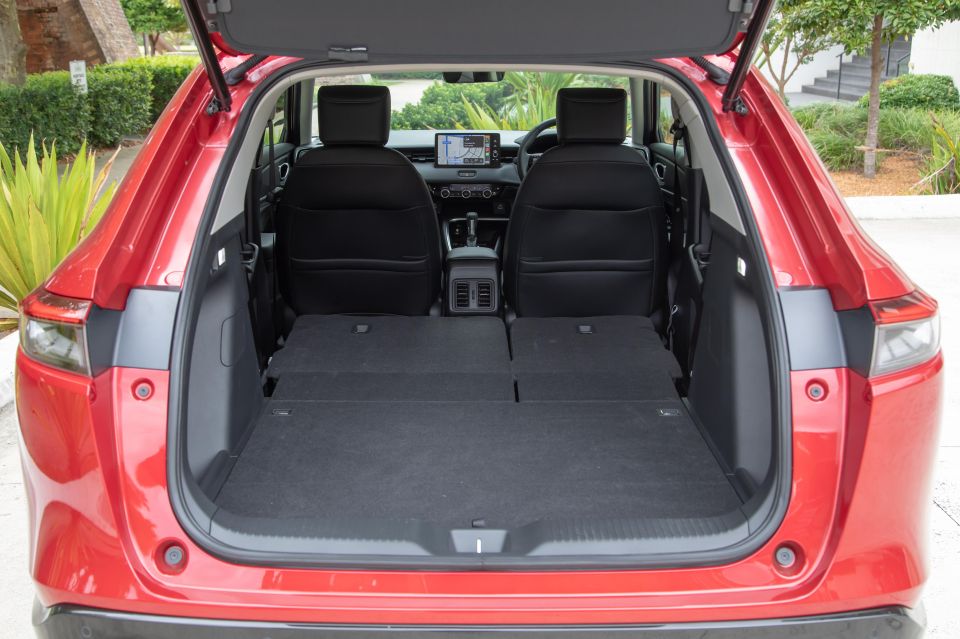
It frees up a total of 1274L of load space to the roof, or 956L to the windows. Either way, it puts the Honda well into the lead when it comes to overall carrying capacity in its HEV category.
Moreover, there the HR-V e:HEV features a ‘powered tailgate with walk-away close’ that uses the proximity key for added convenience when both hands are carrying grocery bags.
What’s more, the boot aperture is wide and the floor low enough for easy loading of the heavier stuff.
Power in the HR-V e:HEV comes from a 1.5-litre naturally-aspirated four-cylinder petrol engine running the efficient Atkinson cycle paired with two electric motors and a small lithium-ion battery pack.
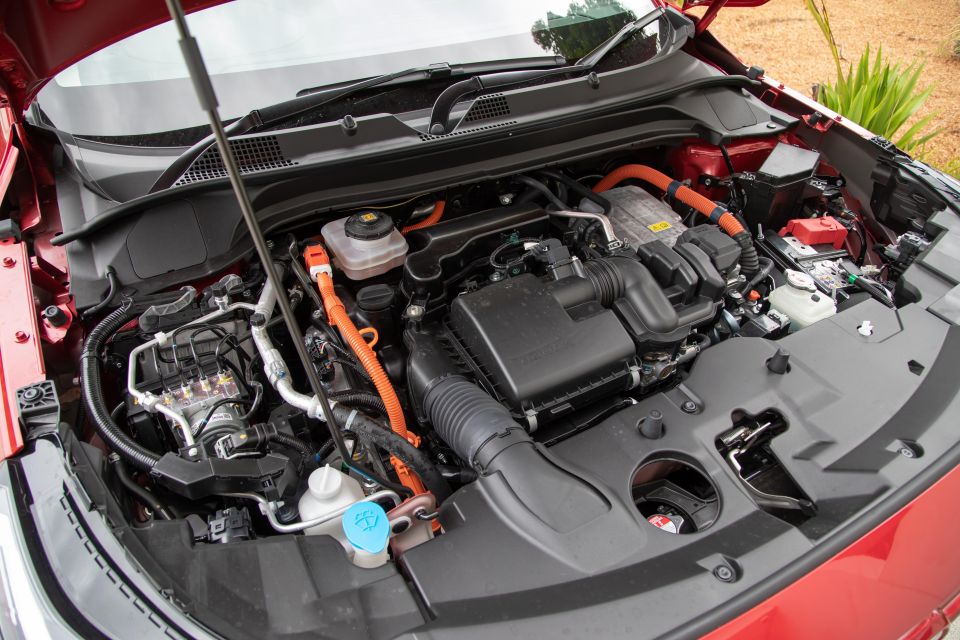
System outputs are rated at 96kW (4000-8000rpm) and 253Nm (0-3500rpm), with drive exclusively sent to the front axle via what Honda calls a fixed-gear transmission coupled to a ‘power control unit’ – also referred to as an e-CVT.
Honda says the hybrid system is more compact even than that used in the tiny (and related) Jazz hatchback not sold here, while also achieving greater energy density thanks to 25 per cent more battery cells.
The power control unit (PCU) has also been downsized and is water cooled for efficient heat management, while the gear ratio between the electric motor and wheels has been lowered for better throttle response.
Honda also claims the fixed-gear system allows drivers to benefit from more electric drive time when in cities than with other hybrids on sale today.

What about fuel economy? Honda’s official combined claim is 4.3L/100km with CO2 emissions of 98g/km, but it’s worth noting the HR-V e:HEV’s ultra-frugal urban cycle figure, quoted at a very impressive 2.9L/100km. Perfect if you’re going for a novated lease and need to convince the company bean counter.
That claimed efficiency figure translates to a theoretical driving range of 930km per fill of the HR-V’s 40-litre tank, which will happily run on 91 RON regular unleaded.
While we didn’t achieve quite that, we did see unban consumption as low as 4.5L/100km. An impressive result given I tended to put the boot in off the line at least before adopting a more satisfyingly efficient driving style.
I was anticipating a bit of excitement in Honda’s hybrid play in the small SUV segment, despite a daily diet of mostly urban kays from home to the office with the odd trip across town thrown in for good measure.
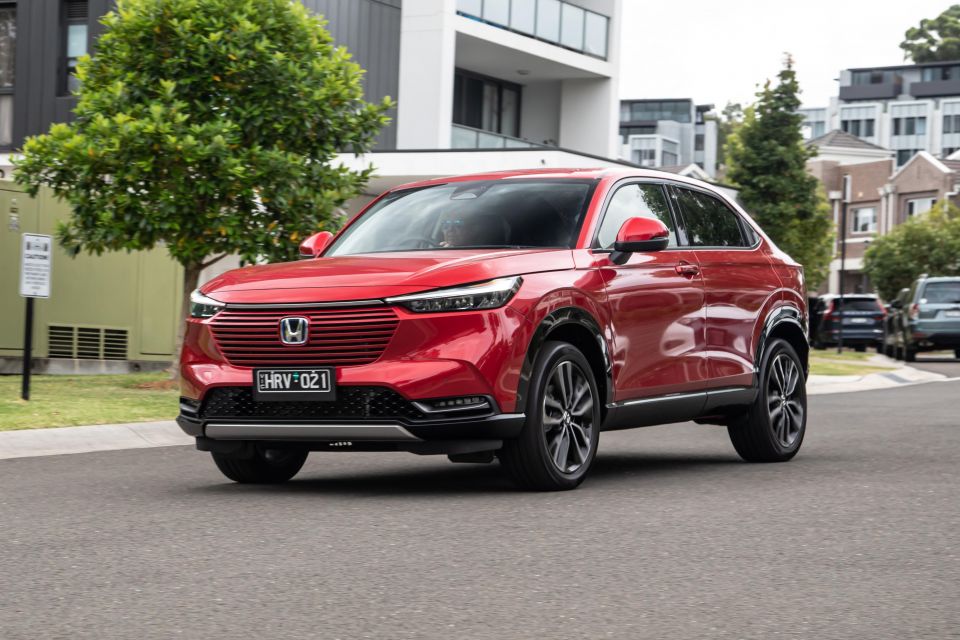
Where expert car reviews meet expert car buying – CarExpert gives you trusted advice, personalised service and real savings on your next new car.
Once I found the red-lit start/stop button behind the right side of the steering wheel, we were finally off and running – albeit in total silence as I gently wound my way down to the local for an early morning brew.
It’s only four or five kilometres of mostly downhill driving to the flats of Collaroy Beach, and only once did the 1.5L petrol engine kick in when I needed to put the boot in and manoeuvre in front of other guy, at least for a fighting chance of bagging the perfect spot directly outside.
Call me ungrateful if you will, but with a 1.5L petrol motor, two electric motors and a more powerful battery cell, you’d think Honda would be able to give us a tad more grunt than a lousy 96kW and 251Nm. Impressive… not.
Nevertheless, flick the drive mode rocker switch (I’m all for tactile rocker switches) and not only will you see ‘red’ in the driver’s display, but you’ll also get thoroughly punchier throttle response – at least enough to get the jump on other drivers from the lights. It’s all part of the fun of driving an EV, or part EV in the Honda’s case.
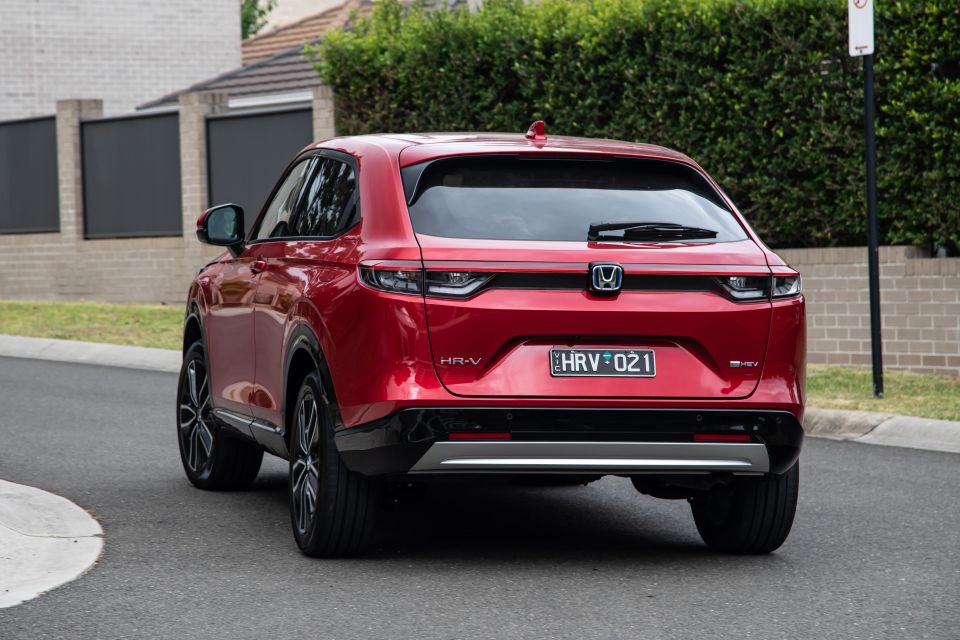
However, while you can certainly pull away quickly from a standstill in Sport, it’s not all that tardy in Normal or even Eco modes. In any mode, if you give it the beans you’ve got enough torque to drag the HR-V e:HEV off the line ahead of most other cars.
I generally despise CVTs for their lack of linearity in power delivery and noisy engine flaring at times, especially if you’re too eager with the throttle. Usually it’s best to ease on the power in the interests of smoothness and fuel efficiency.
Honda’s CVT makes a good job of simulating gear ratios with nicely calibrated steps – up and down the range. Overall, it’s a very polished version of the CVT and not so much of a detraction as most.
Eco can useful for low-speed driving in busy town centres where speed limits are as low as 30km/h, as in my home town of Manly on Sydney’s Northern Beaches. Often I found the petrol engine didn’t kick in at all, and same story when circling upwards of 11 floors in the carpark.
The HRV e:HEV also offers several layers of brake regen, engaged by selecting B with the shifter and using the paddle shifters adjust levels. It doesn’t allow for one-pedal driving, but it does slow the car down as well as help charge the battery quicker.
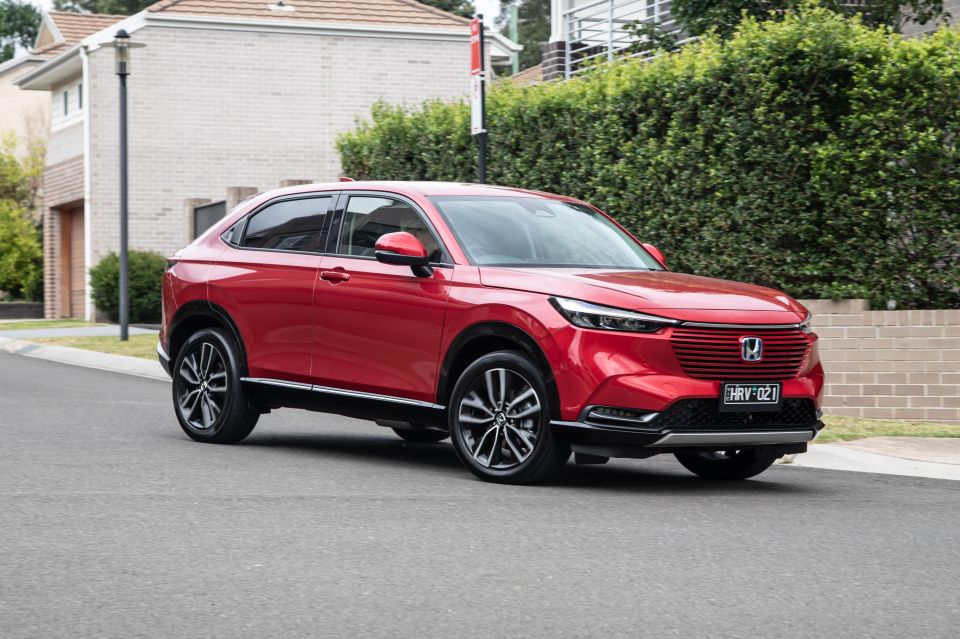
The HR-V also offers a more comfortable ride than most of its rivals over all manner of surfaces – I’d go so far as to say it’s outstanding in the segment. It glides over broken roads and smaller potholes without so much as a ruffle. About the only thing you’ll feel through the chassis are steel expansion joints, and yet it’s still an adept handling SUV.
While it may not set the world on fire at the Wednesday night drags, it does corner superbly. The chassis benefits from additional rigidity over the previous iteration, while the steering’s response and newfound directness is similar in feel to the Civic on corner turn-in.
It’s more linear than most, and again this is something I simply wasn’t expecting of the HR-V e:HEV. Rest assured, go ahead and treat yourself to a few decent sections of twisties and don’t hold back. Moreover, it might even save your bacon in an emergency avoidance manoeuvre.
Braking too, is sure-footed and confidence inspiring. But then again the HR-V weighs just 1382kg, and it helps the vehicle is well balanced and the major mechanicals are in sync like the Honda.
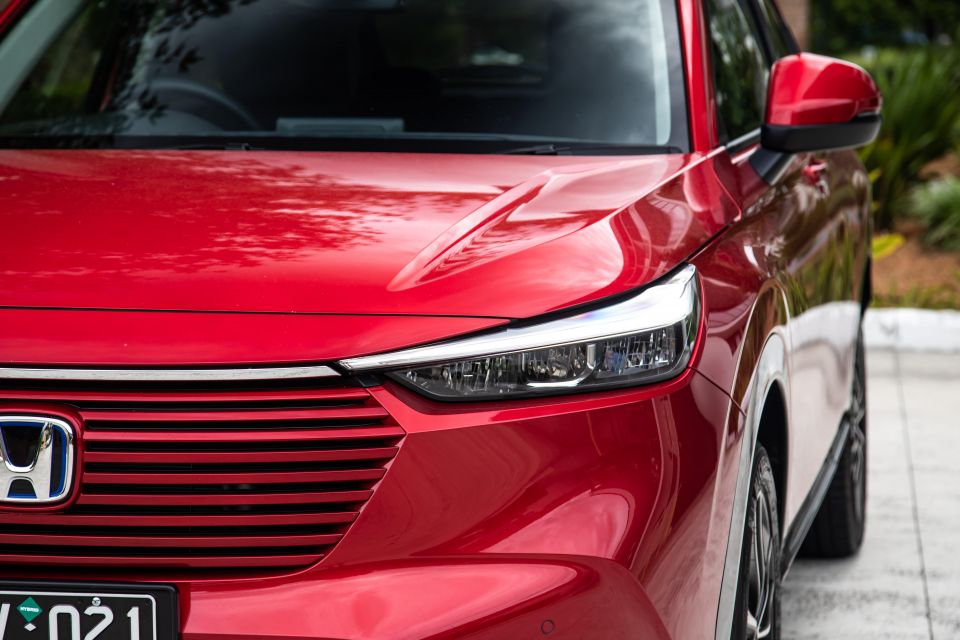



HR-V Vi X highlights:
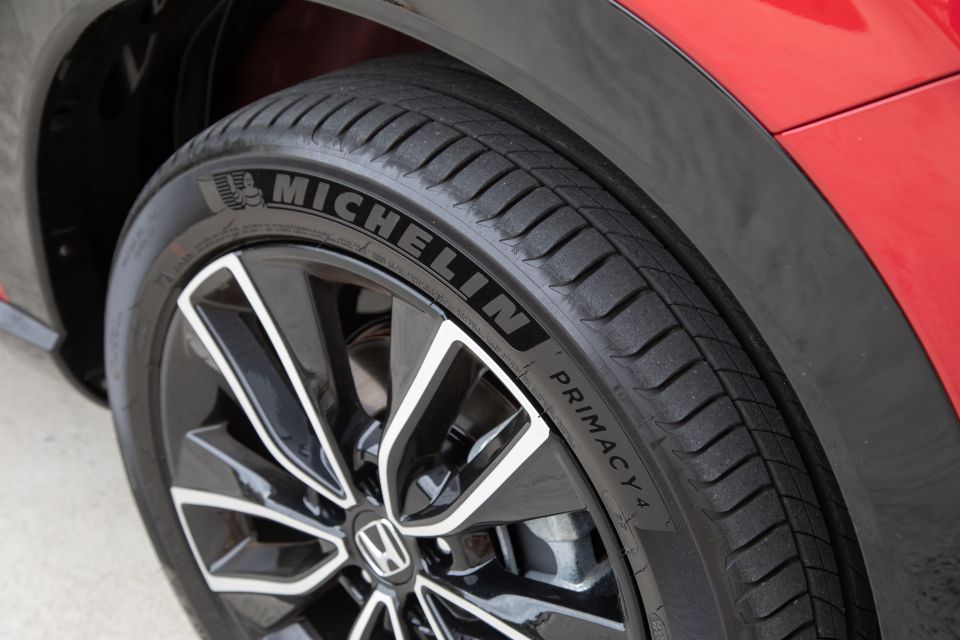
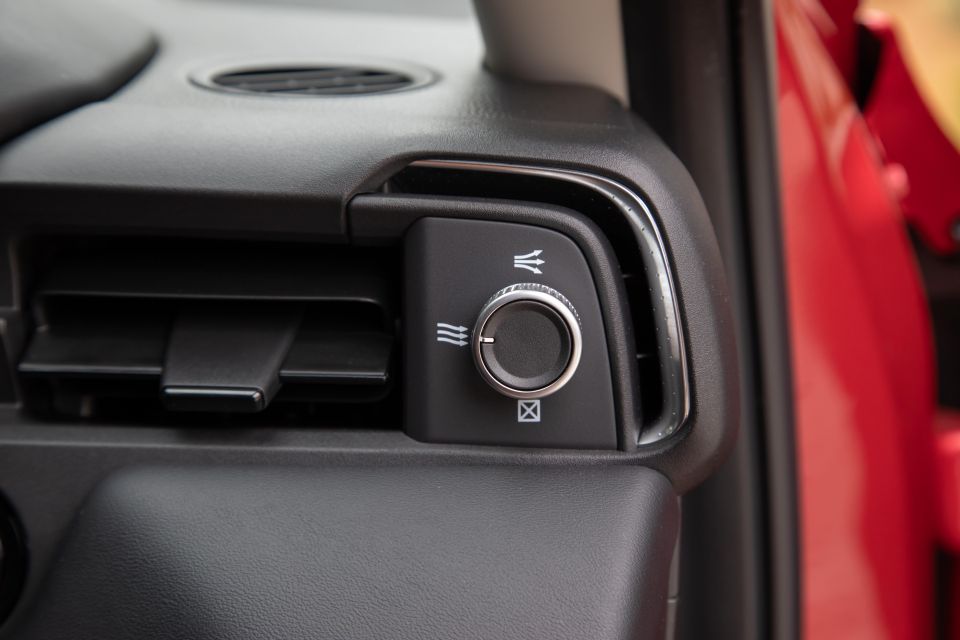
HR-V e:HEV L adds:
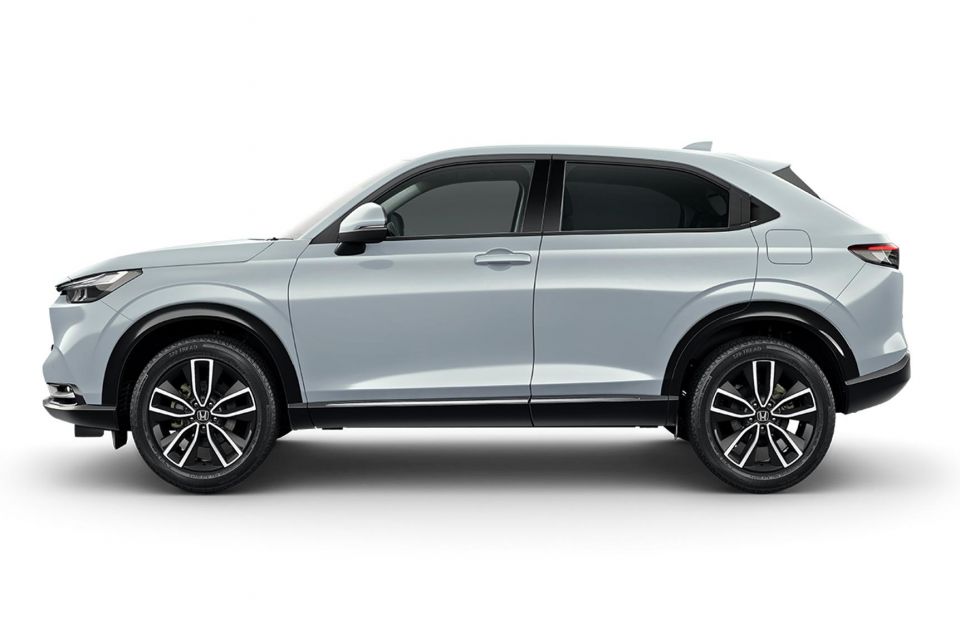
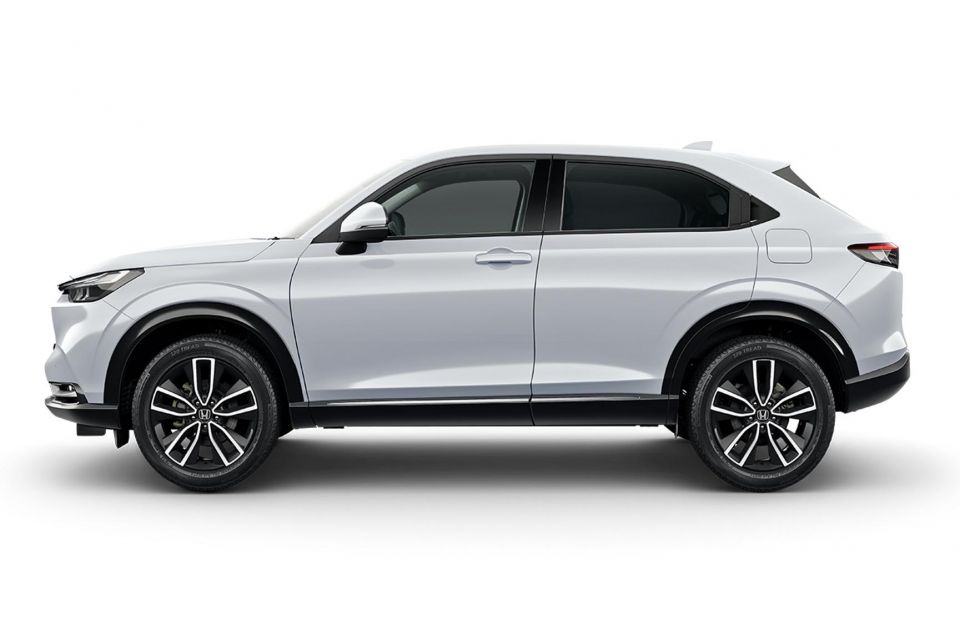
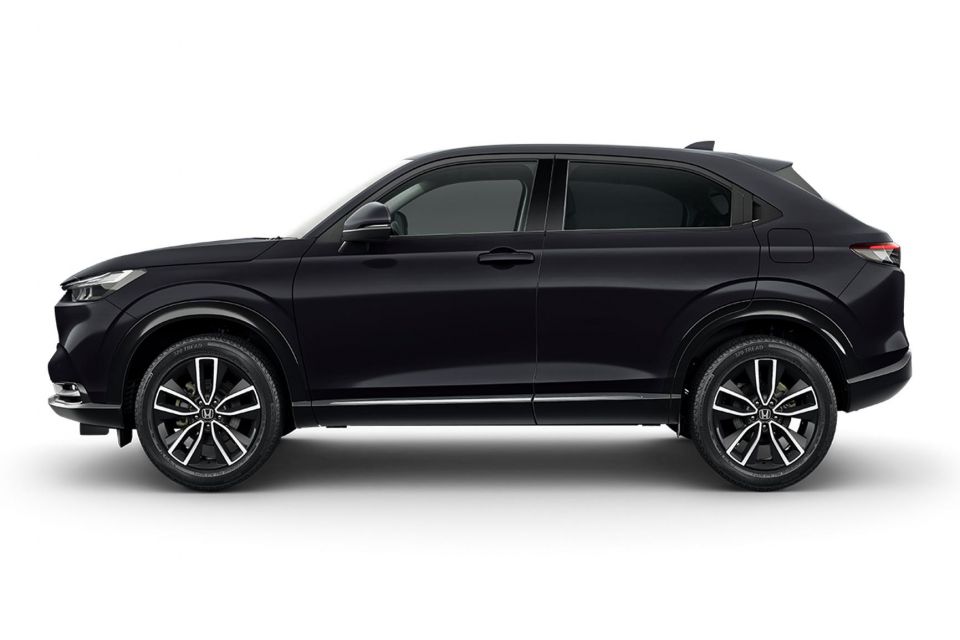
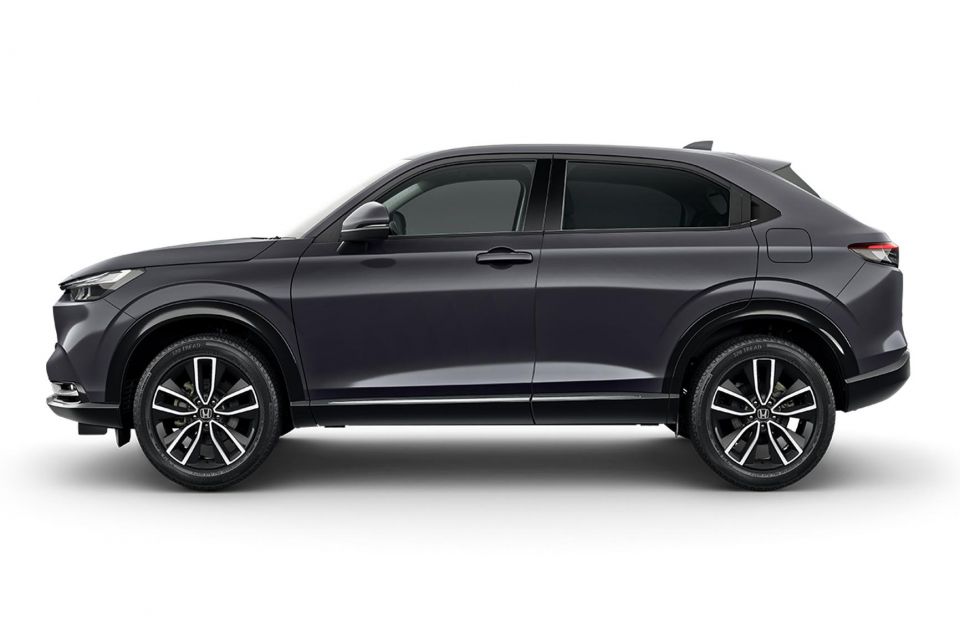
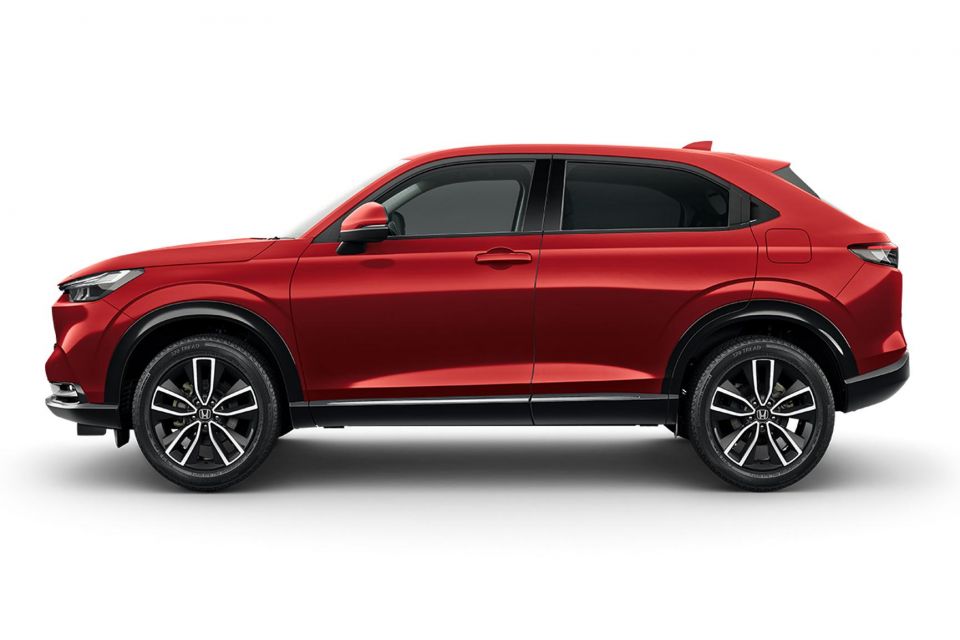
The Honda HR-V has a four-star ANCAP safety rating on the back of crash testing carried out in 2022 by ANCAP, and applies to all HR-V variants.
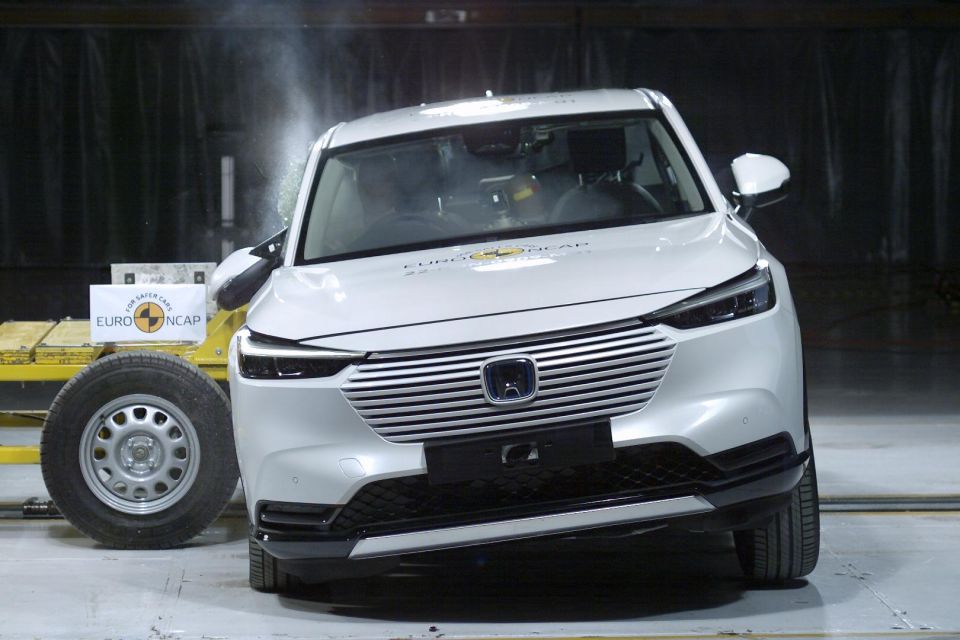
It scored 82 per cent for adult occupant protection, 77 per cent for child occupant protection, 72 per cent for vulnerable road user and 69 per cent for safety assist.
Standard safety features include:
HR-V e:HEV L adds:
The Honda line-up is covered by a five-year, unlimited-kilometre warranty with an eight-year IMA battery module warranty for the hybrid. Additionally, there’s five years of premium 24/7 roadside assist.
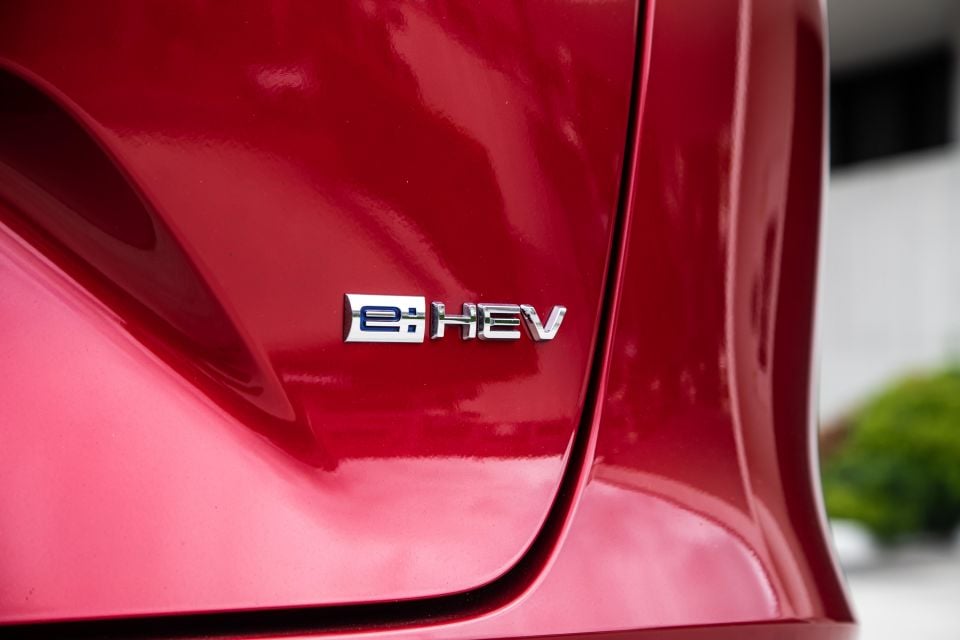
On top of the warranty and roadside assist coverage, Honda guarantees five years of complimentary satellite navigation mapping updates when you service at a Honda Centre.
Speaking of servicing, scheduled maintenance is required every 12 months or 10,000 kilometres – whichever comes first.
Servicing costs are capped at $199 per visit for the first five scheduled years. Mind, that’s up from $125 where it started, but I’d argue it’s still relatively inexpensive and one of the cheapest in the segment.
Buy your new car without the stress. It's fast, simple and completely free.

Great service from Travis and team, second time I have used this business would not hesitate to recommend them to anyone
Craig C.
Purchased a Ford Ranger in Sunshine Coast, QLD
CarExpert helped Craig save $7,224 on his Ford Ranger, now let us save you on your next new car.
Get your BEST priceIf you can get over the four seats, lack of sunroof and a four-star safety rating (some won’t) you’ll have purchased one of the most enjoyable, capable and well-equipped small SUVs on the market today.
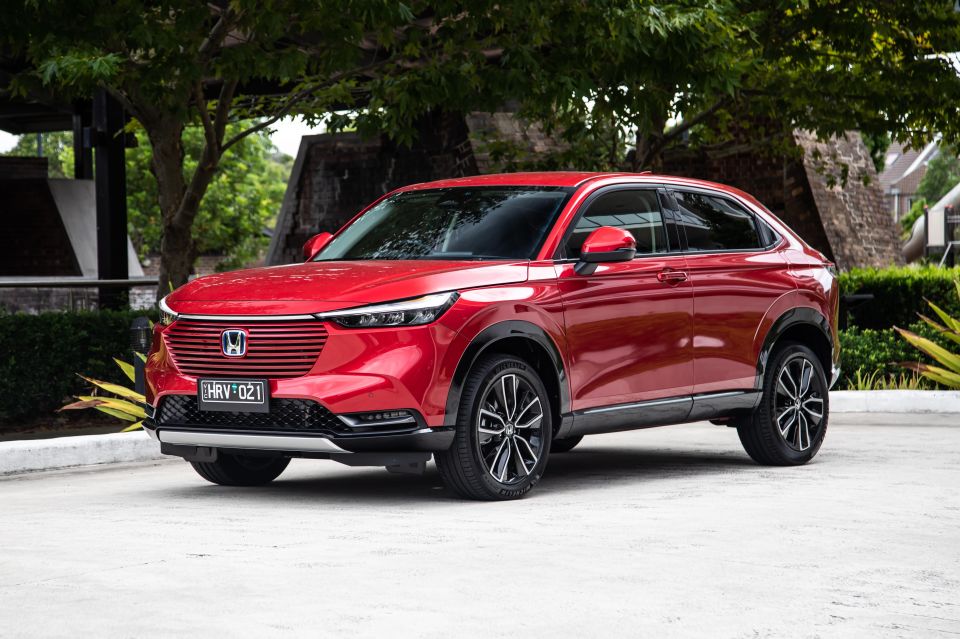
It’s a stylish design with brilliant ergonomics, while the ride and handling balance puts it near the top of its class.
It’s also one of the most comfortable cabins in the business albeit for the lack of leather seats – like me, you’ll get over the latter and won’t give it a second thought once you’ve experienced the seat comfort itself.
Offering only four seats will be a deal-breaker for some, but the upside is more space for all and more usable carrying capacity than anything in the class as far as hybrids go, at least until the new Hyundai Kona drops.
While it isn’t cheap, the HR-V e:HEV is also not the most expensive, and will likely to appeal to those wanting something a cut above the rest.
If you haven’t driven a Honda in a while, best you go and have a steer in one. You’re going to be pleasantly surprised this HR-V.
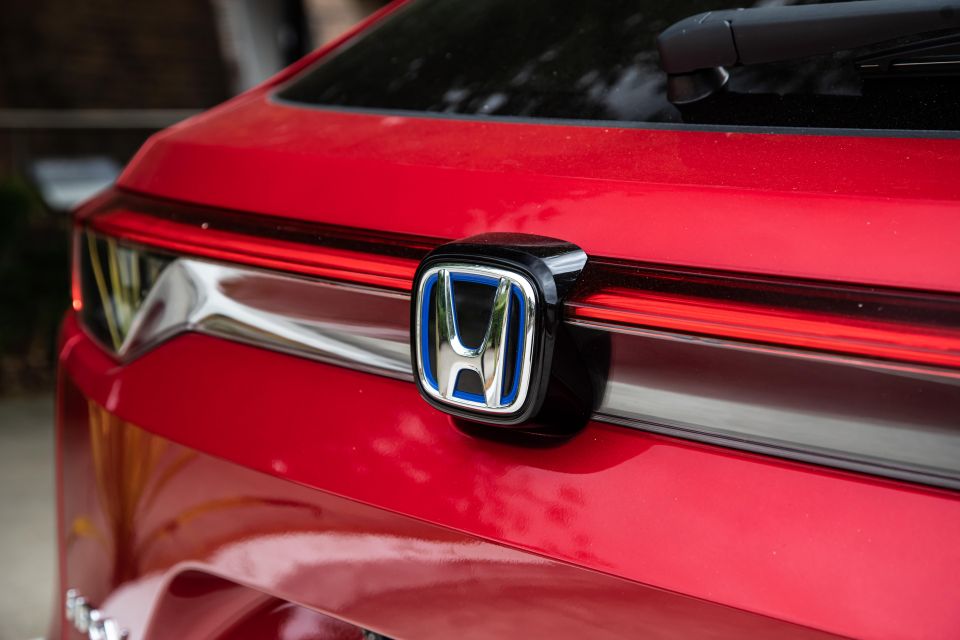
Click the images for the full gallery
MORE: Everything Honda HR-V
Where expert car reviews meet expert car buying – CarExpert gives you trusted advice, personalised service and real savings on your next new car.
Anthony Crawford is a CarExpert co-founder and senior presenter with 20+years in automotive journalism and content creation.


Josh Nevett
1 Month Ago
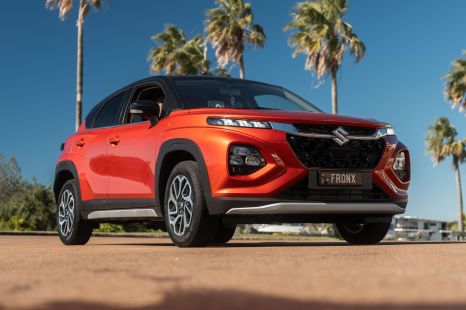

William Stopford
1 Month Ago
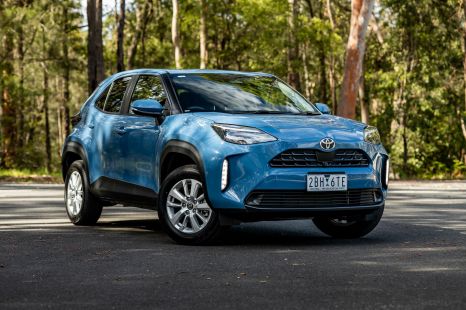

Matt Campbell
1 Month Ago
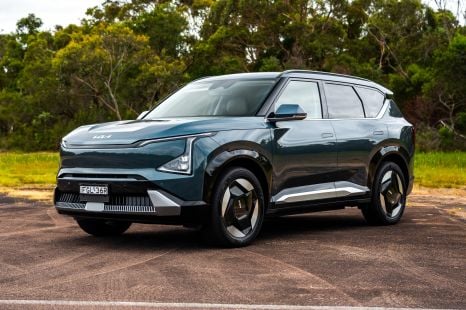

James Wong
1 Month Ago
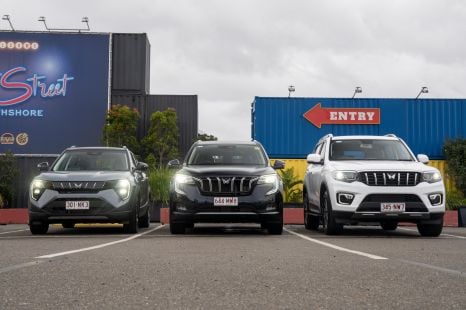

CarExpert.com.au
24 Days Ago
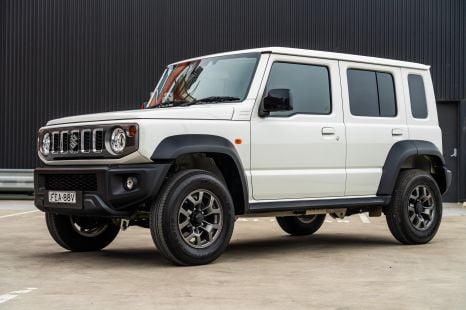

Damion Smy
15 Days Ago